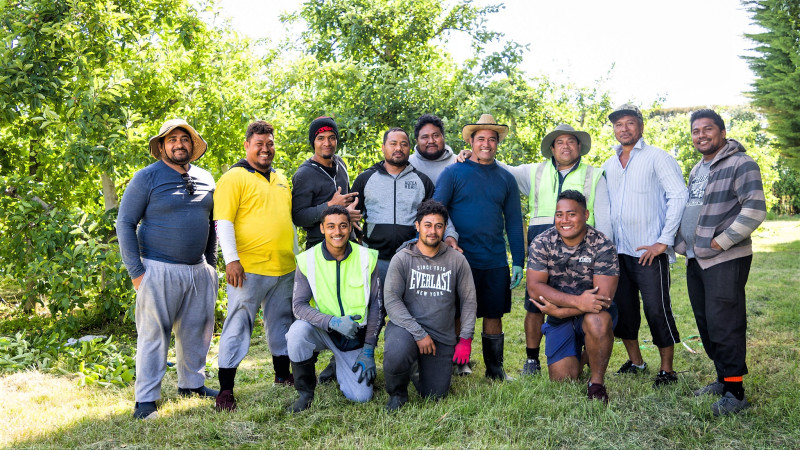The New Zealand Government’s Recognised Seasonal Employer (RSE) scheme has been in place since 2007. The RSE scheme aims to drive economic sustainability for both sending and receiving countries. The scheme allows for the recruitment of workers in the horticulture and viticulture industries, to work in jobs that include planting, maintenance, harvesting, packing and winter pruning.
Since the inception of RSE we have seen industry growth and businesses able to employ New Zealanders in skilled, fulltime employment, thousands of workers have earned good income that they take home to improve their livelihoods and many more success stories.
In September 2024, the government made changes for the RSE scheme. Details are available here.
For more information on the RSE policy visit the Immigration New Zealand website here.
RSE scheme requirements
Employers must meet a stringent set of government criteria to be granted RSE status (accreditation).
RSE status is only granted where employers meet the specific standards set out by Immigration New Zealand (INZ) such as evidence of their financial position, a demonstration of good employment practices, as well as a commitment to training and employing New Zealanders.
Once granted RSE status, employers must apply for an Agreement to Recruit (ATR) to bring Pacific workers into the country for seasonal work up to seven months in any eleven-month period.
Under this ATR, employers must meet further obligations set out by INZ, including but not limited to satisfactory pastoral care, fulfilment of health and safety requirements and suitable accommodation and onsite facilities.

Horticulture industry RSE videos
Watch RSE workers share their experiences of working in New Zealand. Voices of the Pacific videos by HortNZ and the Pacific Cooperation Foundation.
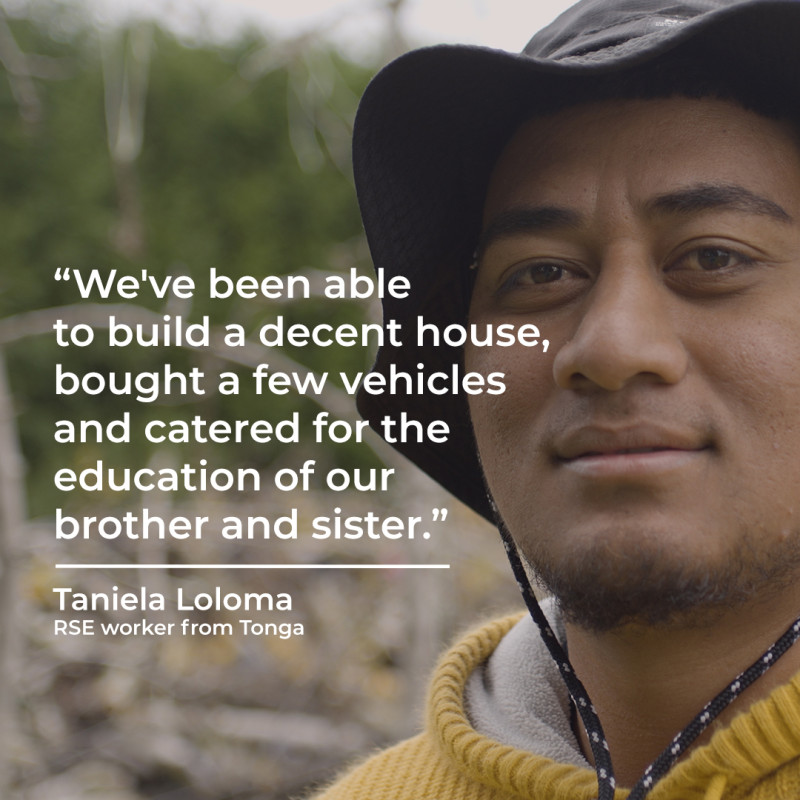
Voices of the Pacific - Tonga
Voices of the Pacific : Tonga. Follow Lisiate Loloma and his brother Taniela as they travel from New Zealand back home to Tonga. They are sons of one of the original Tongan RSE workers to take part in the scheme. Eldest son Lisiate considers his future, now that his father has passed away.
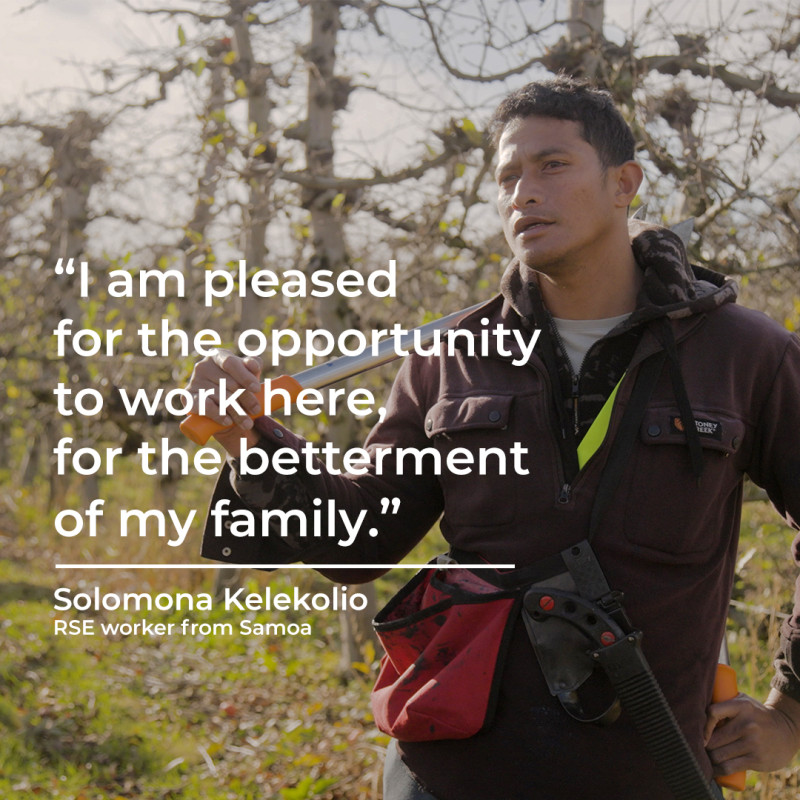
Voices of the Pacific - Samoa
We follow RSE worker Solomona Kelekolio from an apple orchard in Hastings back to Samoa, where he is welcomed home alongside other
seasonal workers by the nation’s Prime Minister and Tuatagaloa Joe Annandale from Poutasi Village.
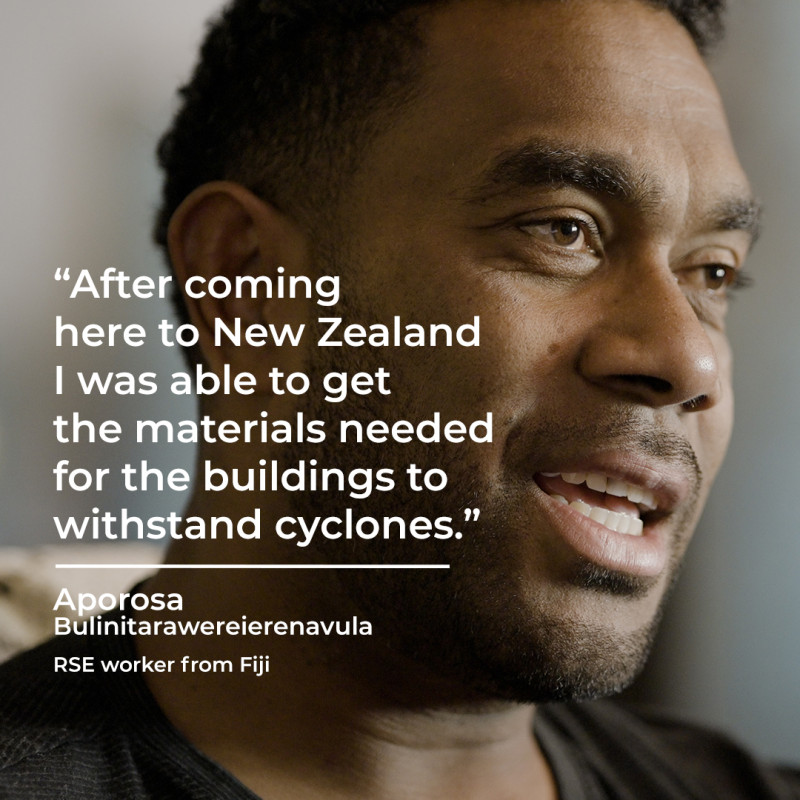
Voices of the Pacific - Fiji
Aporosa Bulinitarawereierenavula travelled from the Yasawa Islands in Fiji to New Zealand after a cyclone. He talks about the skills he’s gained that have helped him to rebuild his village.
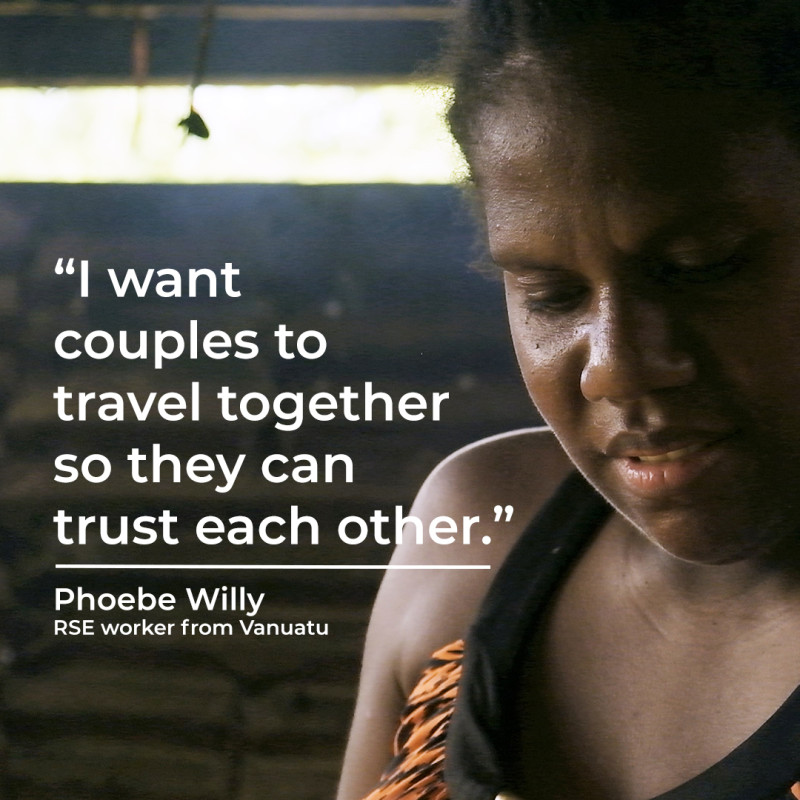
Voices of the Pacific - Vanuatu
Well known RSE worker Peter Bumseng has been coming to New Zealand for 15 years, since the scheme’s inception. While he mentors other Ni-Vanuatu workers in New Zealand, Peter’s wife Regina works with the families of workers in Vanuatu. Their commitment to providing support in each country during separation has given stability to many families.
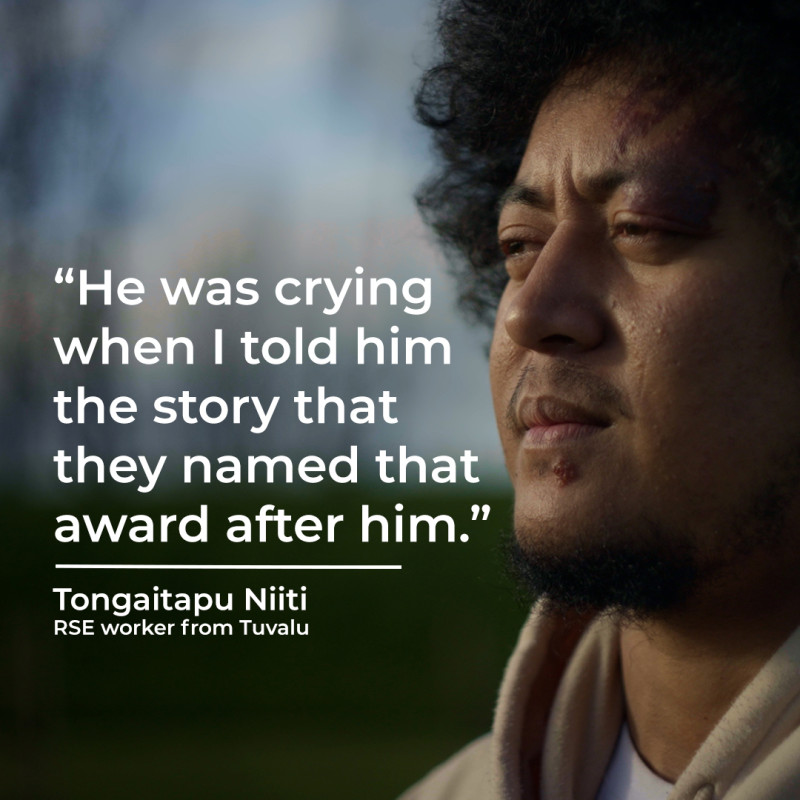
Voices of the Pacific - Tuvalu
Proud Tuvaluan Keith Taulealea was one of the original RSE workers to come to New Zealand. He has left behind an incredible
legacy not only in Tuvalu, but also in New Zealand where an annual award is given to RSE workers in Keith’s name.

